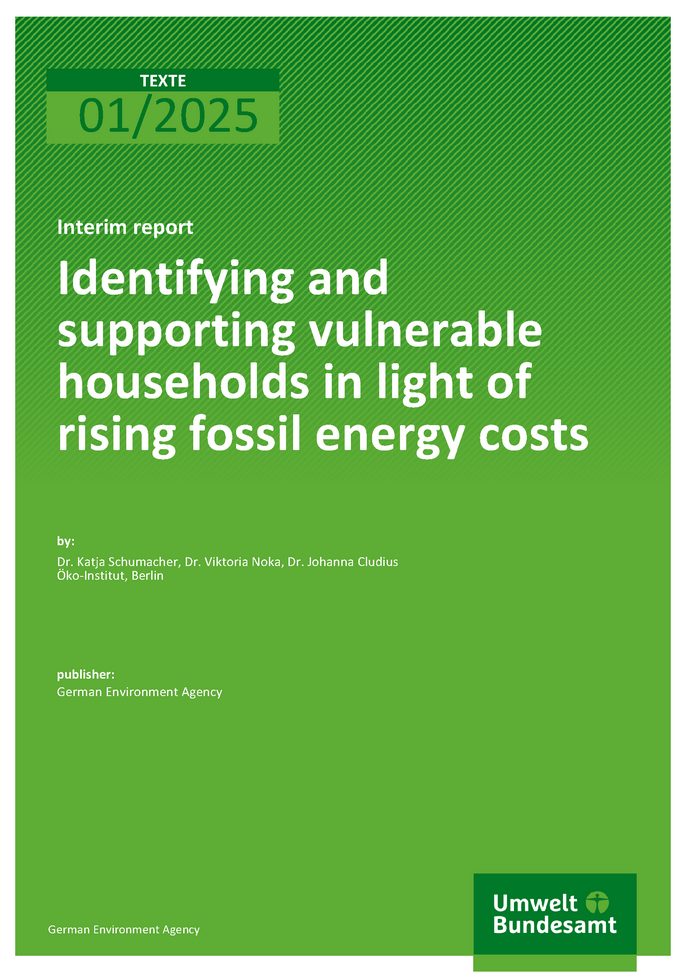
Identifying and supporting vulnerable households in light of rising fossil energy costs
Rising energy prices, poor energy performance of buildings and low incomes can leave households unable to meet their energy needs, adequately heat their homes or pay their energy bills. These households are referred to as energy poor or vulnerable households. However, a standardised definition and robust indicators of energy poverty are currently lacking in Germany. This study therefore addresses the concepts of energy poverty and vulnerability, presents definitions and indicators, and looks at policies and measures to support affected groups. The study emphasises that energy poverty should not be seen as part of general poverty, but as a distinct structural problem. Due to budget constraints or lack of decision-making power, affected households are unable to respond adequately to an increase in fossil fuel prices, for example as a result of CO2 pricing, by investing in energy-efficient refurbishment or renewable heat.
To prevent a worsening of social inequalities as a result of the European carbon pricing scheme for buildings and transport (ETS2), the Social Climate Fund will be established at EU level to complement the ETS2. The National Social Climate Plans, due in mid-2025, require EU member states to define energy poverty and vulnerability, develop indicators to identify these groups, and design policies and measures to help these groups transition to climate-friendly technologies.
Using a range of indicators, the study concludes that around 3 million households in Germany are vulnerable to rising fossil fuel prices. This represents around 10% of the 30 million households that use fossil fuels for heating. More than 80% of these vulnerable households live in multi-family dwellings and almost all of them are tenants.
The study examines different instruments to support vulnerable households and also looks at good practice examples from other countries. Socially differentiated financing of efficiency and decarbonisation measures, similar to the French MaPrimeRénov' programme, could also help those households to invest that have so far hardly benefited from state funding programmes in Germany.